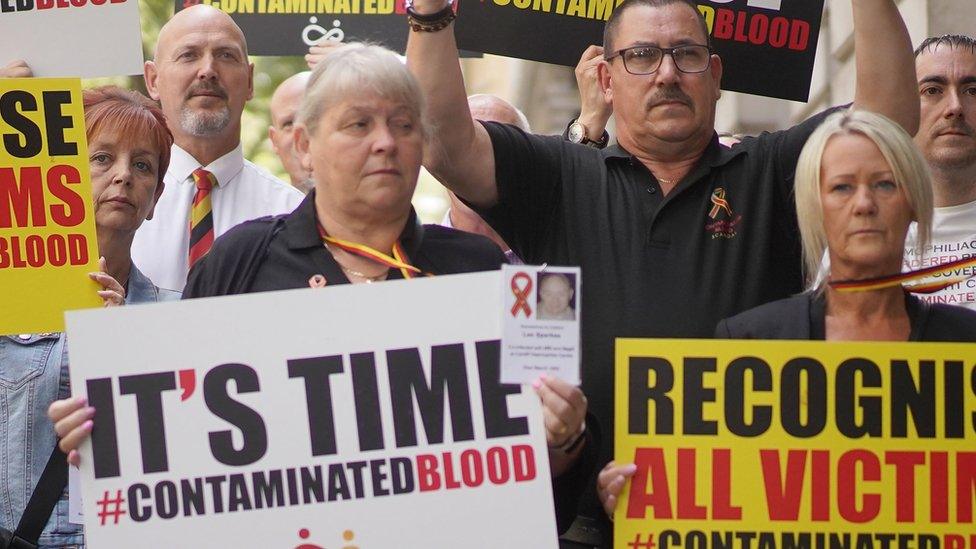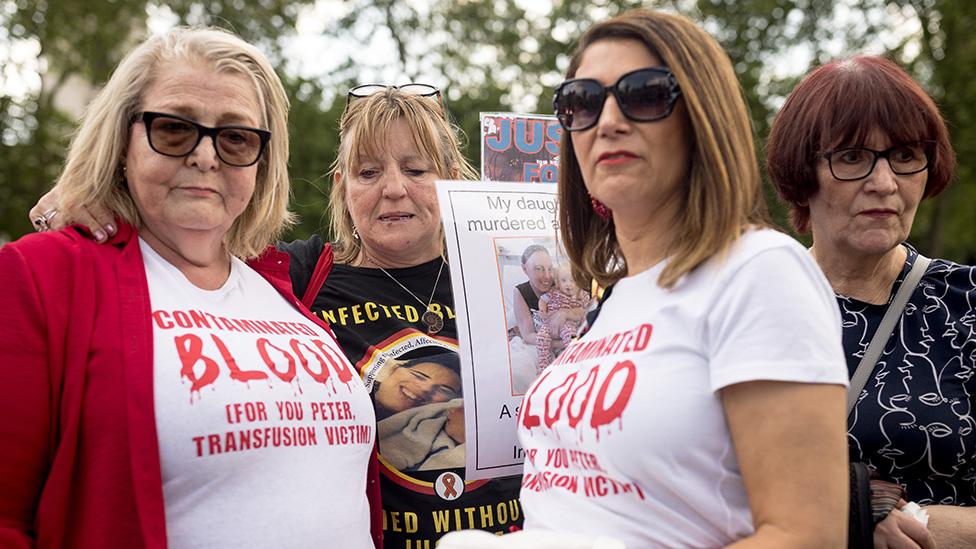Bristol woman speaks of her 'disbelief' over infected blood transfusion
- Published
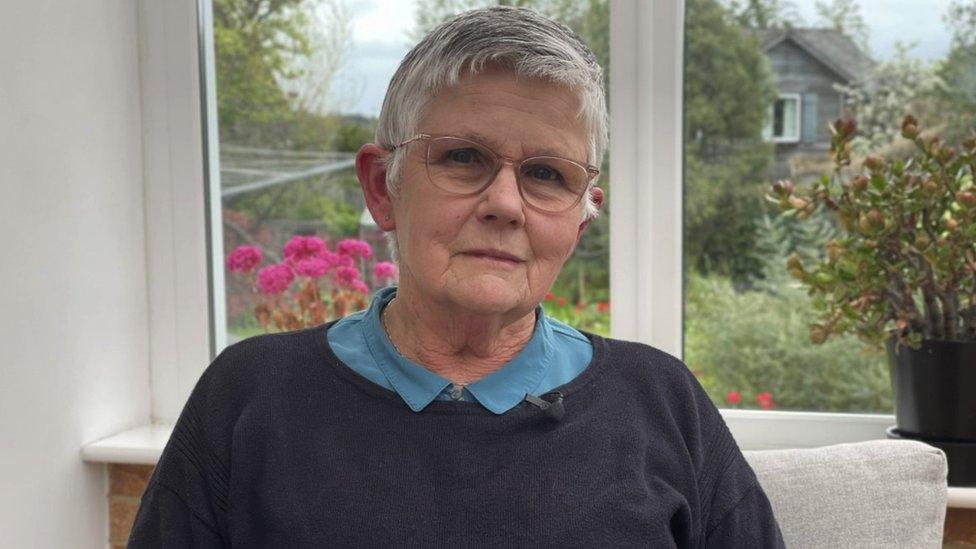
Liz Davies was diagnosed with hepatitis C in 2009
A woman who was given blood infected with hepatitis C said she feels "disbelief" that the condition went undiagnosed for 30 years.
Liz Davies, from Bristol, was given a blood transfusion after childbirth in 1974.
But the 74-year-old lived unknowingly with the condition, as it was only discovered in 2009.
A public inquiry into the UK contaminated blood scandal will be published on May 20.
Ms Davies did not experience any issues following her transfusion, and said she was "fortunate" to only receive one.
She believes that if she had been diagnosed with hepatitis C sooner, her year-long treatment "wouldn't have been quite so invasive and long".
Ms Davies also said she felt angry that her condition went undetected for 35 years.
What is hepatitis C?
According to the NHS, hepatitis C can cause serious and potentially life-threatening damage to the liver over many years if left untreated.
Many patients do not experience noticeable symptoms until their liver has been significantly damaged.
The virus is spread through blood.
Ms Davies said: "All those years, I was a risk to other people.
"That is what I feel quite upset about - I could have caused problems to others completely unknowingly."

Read more on the infected blood inquiry

More than 30,000 people in the UK were infected with HIV and Hepatitis C after being given contaminated blood products during the 1970s and 1980s.
People with haemophilia A and patients requiring blood transfusions following surgery, childbirth or other medical treatment were affected by the scandal.
In the 1970s, supplies were imported from the US as the UK was struggling to meet the demand for blood-clotting treatments.
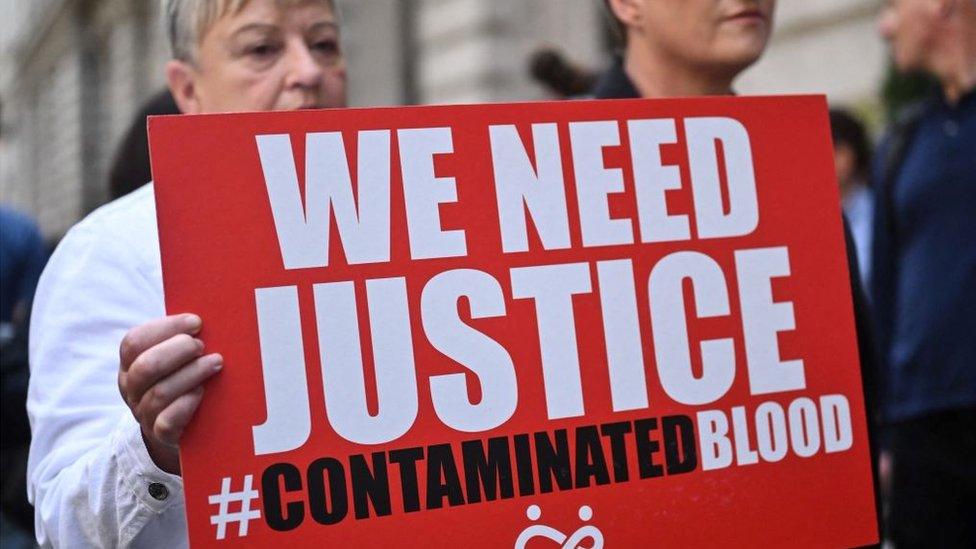
Victims of the scandal are calling for compensation
However, much of the blood was sourced from tens of thousands of high-risk donors such as prison inmates and drug-users.
If just one donor was carrying a virus, there was a risk that the entire batch could be contaminated.
Donated blood was not routinely screened for hepatitis C until 1991, 18 months after the virus was first detected in a laboratory.
More than 3,000 people have died, external in what has been described by MPs as the worst treatment disaster in NHS history.
Ms Davies added: "I want justice for people that have been badly affected by it.
"It would be very nice to feel compensated, but there are people that are far more in need than I am."

Follow BBC Bristol on Facebook, external, X, external and Instagram, external. Send your story ideas to us on email, external or via WhatsApp on 0800 313 4630, external.
Related topics
- Published28 February 2024
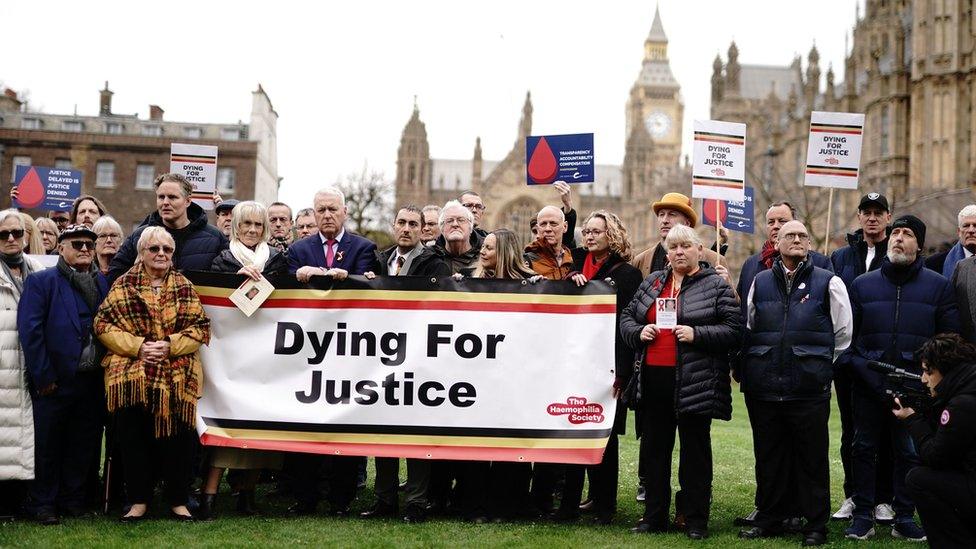
- Published5 December 2023
